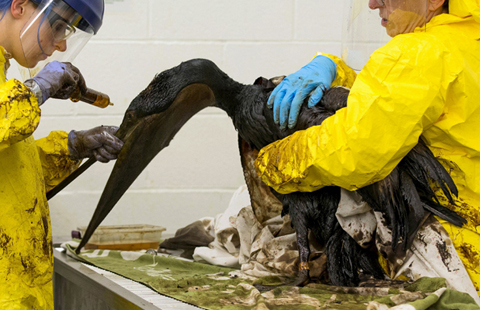Community-based homes encouraged
Updated: 2015-05-29 07:33
By Xu Wei(China Daily)
|
||||||||
|
|
But nursing facilities are faced with a shortage of residents and lack of health care professionals
Chen Meng thought he had chosen one of the most promising industries in the country when he established a community-based nursing home in Beijing in 2011.
"I was living in Huilongguan and saw elderly people there had nowhere to go because there was no nursing home," he recalled.
However, much to his surprise, the home opened six weeks before it welcomed the first resident. At times, he had to help the residents with their daily needs when there was a labor shortage.
Chen's nursing home, Beijing's first private community-based nursing home in the Huilongguan neighborhood in Changping district, has struggled to make ends meet because most elderly people can barely afford the monthly fee of 3,000 yuan ($490). The home has 13 residents. Chen has to cover the wages of four workers and the rent for the property.
"The majority of people grow old before they have enough savings, and because most of them only have a pension of between 2,000 and 3,000 yuan per month, I can hardly raise the fees," he said.
To make ends meet, Chen has to divert revenue from another business that offers catering services for the elderly.
Chen's facility is typical of the 5,300 community-based nursing homes in Beijing, many of which are struggling due to a lack of residents and shortage of professional workers.
The development of community-based nursing homes has been an important part of the city's long-term plan to boost home care for the elderly.
Under a regulation that went into effect this month, the Beijing municipal government said that it will encourage community-based nursing homes to provide day care for the elderly.
In May 2013, the municipal authorities provided a subsidy of 300 yuan for each bed at community-based nursing homes.
Despite this favorable policy, a large number of the city's community-based nursing homes remained empty shells that provided virtually no services, an official at the Beijing Bureau of Civil Affairs told Beijing Times in an interview in 2013.
Community-based nursing homes also face problems of registration and renting suitable properties, the official said.
Chen's nursing home has faced problems with business registration.
"As our home is based in a residential community, it is difficult to find a commercial property to use," he said.
A commercial property is vital in order to complete the business registration procedures required by the industry and commerce authorities, he said.

"Without registration, we cannot collect the subsidies from the civil affairs authorities. But to do that, we have to locate our nursing home on a noisy street," he said.
His nursing home was forced to rent a residential building, which had to undergo some renovation because neighbors complained about the noise.
A shortage of skilled nursing workers presents another problem, he said.
"Nursing workers we hire are mostly people in their 40s or 50s. Young people don't choose this job, which they view as tiring and dirty," he said.
However, Chen said he believes the solution to the country's aging problem lies in community-based nursing homes.
"The elderly are more than willing to live near their families in the knowledge that their family members are just a 10-minute walk away from them. It is also easier for the families to visit on a regular basis," he said.
Community-based nursing homes also guarantee a better quality of care because the nursing workers have a smaller number of elderly residents to take care of than in other nursing homes.
Chen also said: "It could take hundreds of millions of yuan to build a standard nursing home.
"The investment for a community-based nursing home is much smaller."
xuwei@chinadaily.com.cn
- Half of college students want to work in second-tier cities: Survey
- CPC publishes 'self-decoding' books for Western audience
- Capital aiming for 208 new care centers for the elderly
- Ten photos you don’t wanna miss – May 29
- Guangdong police bust huge 'ice' labs
- Patients take precedence for top researcher

 Across Canada (May 29)
Across Canada (May 29)
 Ten photos you don't wanna miss - May 28
Ten photos you don't wanna miss - May 28
 Top 9 smartphone-driven gadgets
Top 9 smartphone-driven gadgets
 Photographer captures Great Wall at night
Photographer captures Great Wall at night
 Ancient shoe brand that 'fast-tracks promotion'
Ancient shoe brand that 'fast-tracks promotion'
 Play a melody while walking on musical cliff road
Play a melody while walking on musical cliff road
 Russians battle it out in bathtub race
Russians battle it out in bathtub race
 California oil spill takes toll on marine mammals
California oil spill takes toll on marine mammals
Most Viewed
Editor's Picks

|

|

|

|

|

|
Today's Top News
Li: Spain a partner for new market
Foreign policy not foreign: expert
China makes splash at book fair
Brazil ready to collaborate over FIFA graft probe
Rick Santorum announces second White House run
Massive arson fire suspect arrested in Los Angeles
US senator in Cuba says normal relations 'weeks away'
Li seeks 'dual track' for Chile exchanges
US Weekly

|

|







